Follow these Top Cybersecurity Professors on Twitter
Cybersecurity professors can have a range of expertise, from architecture, maintenance, and administration to forensic investigation of secure networked systems, a type of infrastructure (with a corresponding set of policies) increasingly necessary for safe operation of governments, businesses, nonprofits and educational institutions of all sizes.
While cybersecurity professors often teach a number of classes related to the many aspects of securing data and other information, they often work as consultants as well, with careers building and maintaining information security systems in the private sector. Along with dedicating their time to research studying new technologies, policies, and threats, they are sometimes tasked with helping to develop their schools’ information security systems.
Following these socially connected cybersecurity professors on Twitter will shine a light on various career opportunities in information security along with several threats experts are trying to address, and the solutions they’re discovering.

Debi Ashenden is a professor of cyber security in the school of computing at University of Portsmouth. Previously, she was head of the Centre of Cyber Security at Cranfield University at the Defence Academy of the UK as well as a managing consultant in the private sector. Her research interests include social and behavioral issues related to cybersecurity, including using both people and technology to protect information systems. Her tweets often relate to the subject matter.

David Bader is the chair of the School of Computational Science and Engineering at Georgia Tech as well as a professor. During President Obama’s administration, Bader was a member of the White House National Strategic Computing Initiative Workshop, which produced a report regarding the changing cyber landscape and big data. He is currently a member of the National Science Foundation’s advisory committee on cyberinfrastructure and also the chief data scientist at Ionic Security. His tweets often relate to developing computational and data technology.

Julia Bell is an associate professor of computer science at Walters State CC. After working as a system analyst at the Fayetteville, Arkansas Police Department, she switched to a career in education, first as a computer science instructor and networking program coordinator at Northwest Arkansas Community College. Bell is interested in innovating and measuring student learning. She often tweets articles and links related to hacking, data breaches and developments in cyber defense, including legal issues.
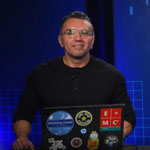
Yuri Diogenes is a professor in the master of security science program at EC-Council University. The school specializing in distance learning is related to the International Council of E-Commerce Consultants, which offers cybersecurity certifications. He is a senior content developer for the CSI Enterprise Mobility and Security Team at Microsoft. Diogenes has written books related to cybersecurity and Microsoft products. He tweets in both English and Portuguese.
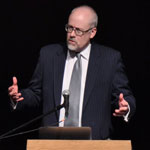
David P. Fidler is an international law professor at Indiana University Maurer School of Law and an adjunct senior fellow for cybersecurity at the Council on Foreign Relations, which names him an expert in international law, cybersecurity, national security, counterinsurgency, biosecurity, and global health. In 2016, he chaired the International Law Association's Study Group on Cybersecurity, Terrorism, and International Law. He often tweets links and posts related to developing legal issues regarding the Internet, international law and foreign policy.
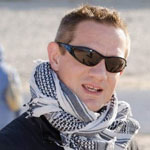
Milyan “Mils” Hills is an associate professor in risk, resilience and corporate security at University of Northampton in the United Kingdom. He works as a subject matter expert for NATO regarding cyber and hybrid warfare, for the British Army in behavioral science, and for the National Centre for Research and Evidence on Security Threats. He previously worked for the UK Ministry of Defence researching information warfare. He tweets on a wide range of issues, including British politics.
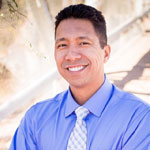
Clyne Namuo was named dean of business and technology at Cochise College after chairing the technology department. His focus areas include leadership, strategy and fiscal constraint, cybersecurity, network administration, and strategic information systems. Namuo also authored Community College Strategy: The Innovative Leader’s Handbook. He frequently tweets personal opinions and thoughts as well as posts promoting Cochise.
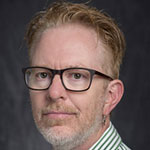
Golden G. Richard III is a professor in the division of computer science and engineering at LSU as well as the associate director of the cybersecurity at the Center of Computation and Technology. He is a certified gold digital forensics investigator, founder of Arcane Alloy LLC, a consulting business related to cybersecurity, and fellow of the American Academy of Forensic Sciences. Along with posts about news and popular culture, Richard tweets about computer language, software and technological developments.
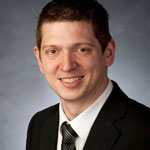
Dale C. Rowe is an associate professor of information technology at BYU with an interest in cybersecurity, information assurance and biometrics. He worked previously for multinational companies designing and building secure systems and has consulted for the military and private businesses, such as financial institutions. His Twitter feed includes posts about ongoing online security issues, such as ransomware.

Thomas Skill is the associate provost and chief information officer at University of Dayton where he is leading development of the Center for Cybersecurity and Data Intelligence. He has worked in computing and communications technology education for 30 years and is a professor in the communications department. Skill is one of the founders of the Cybersecurity Consortium of Southwestern Ohio, which includes business, education, and government entities aiming to improve cybersecurity research, education and collaboration in the Cincinnati-Dayton “cyber corridor.” He tweets about technological developments, including cyber crimes and defense.

Mark Stockman is an associate professor of information technology at University of Cincinnati where his courses include system administration and cybersecurity. His research interests include using existing criminology theories as they relate to cybercrime science. He is a co-founder and co-director of Alloy Cybersecurity, a consulting firm. His tweets include posts about information security.
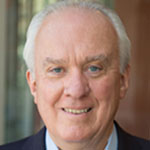
Alan Usas is the program director of the Master in Cybersecurity at Brown as well as an adjunct professor of computer science. He was previously the chief information officer at Yale University and Bennington College as well as vice president at Bennington. Usas also had a career working for businesses heading engineering teams to develop hardware and software related to information security. He often posts tweets related to information security, including mass surveillance.

Doug White is the chair of cybersecurity and networking at Roger Williams University where he teaches computer forensics and network security. He is also the co-host of the Secure Digital Life podcast and president of Secure Technologies LLC, a government contractor that installs IT systems. White previously served as a member of the Rhode Island Governor’s Commission on Cybersecurity. His Twitter feed includes posts about his life, podcast and information security.

Ryan Wright is an associate professor of information technology in the McIntire School of Commerce at University of Virginia where he teaches classes on digital security and privacy as well as digital business strategies. He was a member of the Association for Computing Machinery and Association for Information Systems combined task force to develop model information systems curriculum in 2008. He often tweets links with articles related to solving cyber security problems.
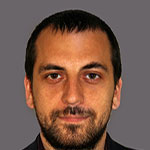
Roman Yampolskiy is an associate professor of computer science at the J.B. Speed School of Engineering at Louisville. His research interests include the intersection of artificial intelligence and security. His published works include the book Artificial Superintelligence: A Futuristic Approach. His Twitter feed includes his own thoughts on the future and impact of developing artificial intelligence as well as links to articles on the subject matter.